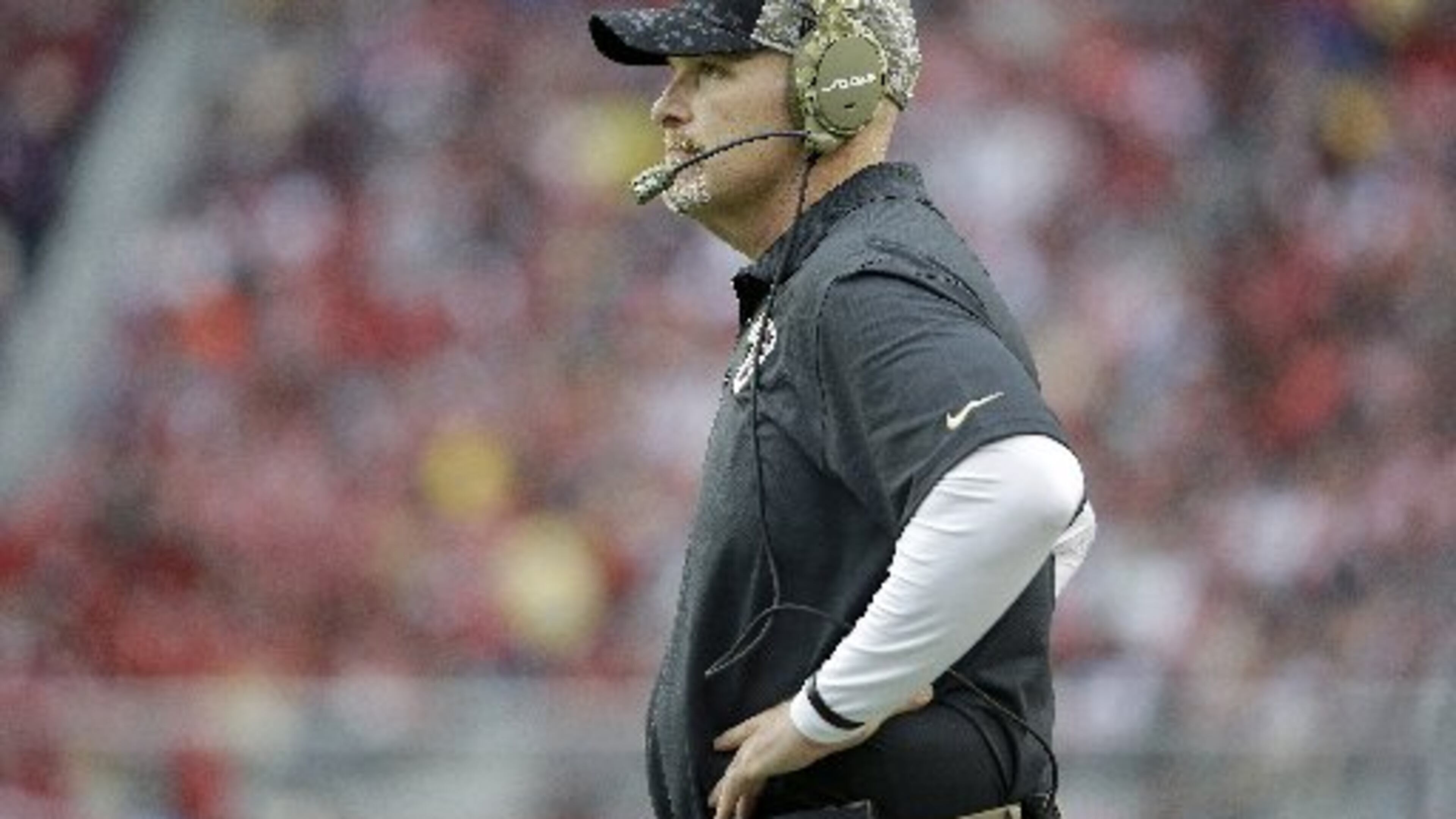Why Dan Quinn hurt the Falcons by not going for it on fourth down

The Falcons trailed by four points and had a fourth down at San Francisco’s one-yard line with three minutes to go. What should they do?
Coach Dan Quinn decided to kick the19-yard field goal--Matt Bryant made it-- and the Falcons went on to lose 17-16. The math overwhelmingly says Quinn should have gone for the touchdown.

That's according to the Advanced Football Analytics fourth down calculator, which is based on Brian Burke's study of data from 2,400 NFL games. Click here for the details.
According to the AFA calculator, the Falcons had a much higher win probability by going for it (59 percent) than making the field goal (17 percent). That's right: Quinn significantly decreased his team's chances of winning by kicking the field goal. The difference in their win probability after going for the touchdown and failing (35 percent) would have been better than the win probability after making the field goal.
The math says this was an egregious coaching error by Quinn and it also makes sense intuitively. If the Falcons had scored a touchdown, they would win the game by covering the kickoff and preventing the 49ers from scoring a touchdown. By kicking the field goal, the Falcons had to cover the kickoff, stop the 49ers, get the ball back with the field position and time to mount a field-goal drive. If the Falcons had failed to score the touchdown, the 49ers would have the ball near their own goal line where lots of bad things could happen for them: safety, fumble in the end zone, blocked punt, etc.
There are factors the fourth down calculator doesn’t consider that a coach must: strength of his team’s short-yardage offense, strength of his defense, strength of the opponent’s defense, game location, etc. But those factors were irrelevant for the Falcons on Sunday because the math indicates they still had a better chance of winning the game if they went for it and failed than they did by making the field goal.
“The way I chose to do it in that one was to, ‘Let’s kick it, get the stop,’” Quinn explained. “I felt like we were stopping defensively and we’d go stop it again and go win it that way. Looking back, yeah, it’s always a chance to second guess.”
http://bcove.me/nixyb87c
But it's not second-guessing when the math so clearly favors the choice Quinn didn't make. He made the safe choice, not the right one, and he's not alone. Burke's study and others on the same topic show that NFL coaches "should normally be far more aggressive on 4th down."
So why are they not?
Burke agrees with the conclusions of previous studies that say the current conventional thinking on fourth down is a remnant from earlier eras of football when it was harder to score and thus punting and playing defense was the smart play. There’s also the matter of job security: coaches who defy conventional wisdom by going for it on fourth down and failing will be criticized even if the math says they made the right choice.
To those conclusions Burke adds that “people tend to fear a loss more than they value an equivalent gain. This is a built-in tendency toward risk aversion means that coaches would be biased toward kicks rather than conversion attempts.”
Quinn’s risk aversion cost the Falcons their best chance at beating the 49ers in the final minutes. It was a colossal blunder.

